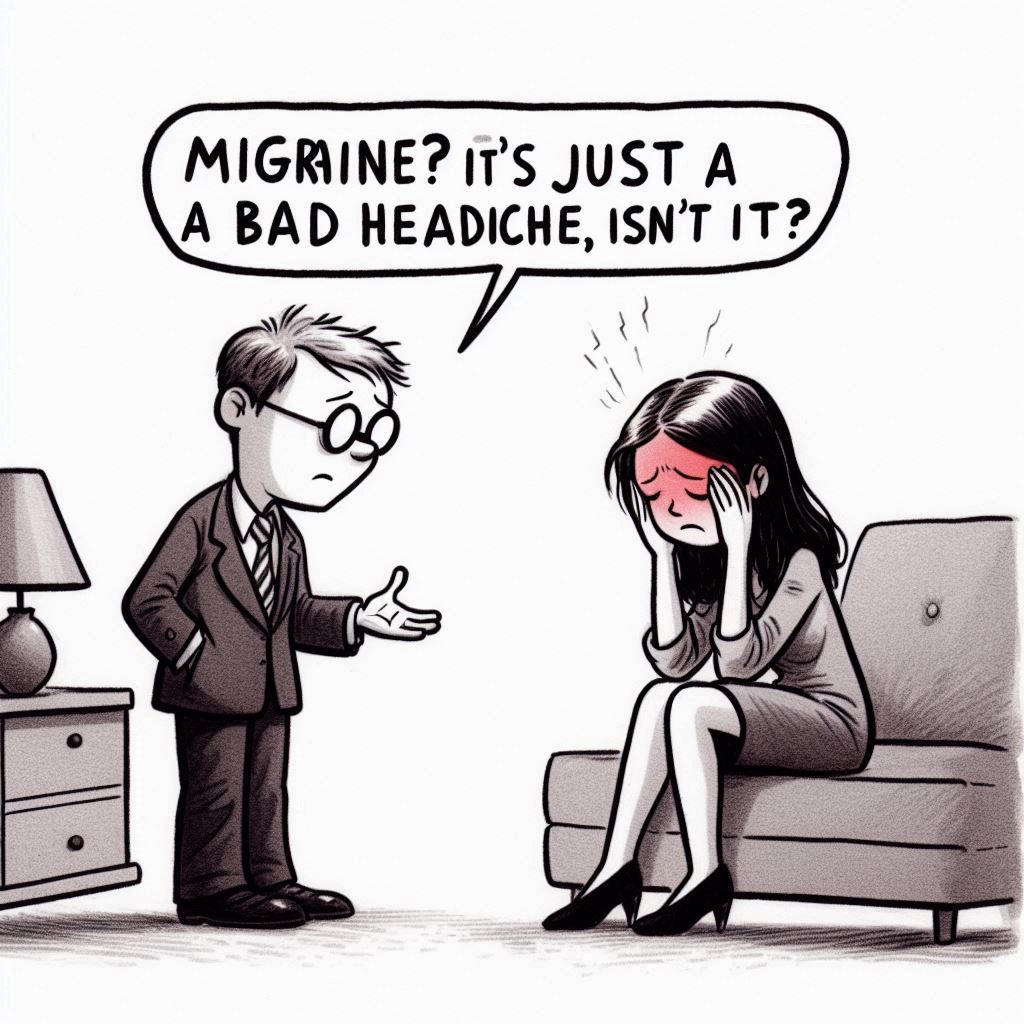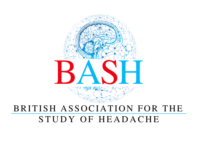With the recent flurry of celebrities and media interest in perimenopause, why is migraine so often ignored? Prof Anne MacGregor feels strongly about this. She explains more here.
Perimenopause- a time of change
In recent years, menopause has rightfully gained significant attention on social media and in the press, shedding light on the physical and emotional challenges women face during this natural life transition. However, there is another health issue affecting women that has not received the same level of attention: migraine.
Migraine - predominantly affects women but is often under-represented

Migraine is not just a bad headache; it is a complex and disabling neurological condition. It disproportionately affects women, with about 18% of women experiencing migraine compared to 6% of men. This disparity is primarily due to hormonal differences, specifically, fluctuating estrogen levels. Despite the high prevalence and severe impact on daily life, migraine remains underrepresented in health discussions and public awareness campaigns.
An under-recognised but common cause of severe disability
According to the Migraine Trust almost a quarter of women in the UK live with migraine, making it one of the most common health issues among women of childbearing age. Migraine in women often worsens during perimenopause, adding an additional burden to this stage of life, which also coincides with the prime years for career development and family responsibilities.
Migraine can be as disabling as dementia
Migraine attacks are not just painful; they are often debilitating. The World Health Organization classifies migraine as the second leading cause of years of life lived with disability in women of reproductive age in the UK - more disabling than anxiety, asthma, and diabetes. Disability is not just restricted to during the attack as the unpredictability of migraine can contribute to constant fear of when the next attack might occur. This can contribute to heightened anxiety and depression, compounding the overall burden of the condition.
Frequent attacks can significantly impair the ability to perform daily activities, both personal and professional. Migraine sufferers often face challenges in maintaining consistent work performance, leading to increased absenteeism and decreased productivity.
The Women's Health Strategy - where's migraine?
While the surge in menopause awareness is commendable, it highlights a stark contrast in the level of attention given to migraine. The Women’s Health Strategy for England, launched in 2022, aims to improve the health outcomes for women and ensuring they receive the care and support they need. Priority areas include menopause, menstrual health and gynaecological conditions. But despite the prevalence and impact of migraine, it is not mentioned anywhere in the document.
Migraine in women needs more attention!
Unless this changes, migraine in women will remain under-discussed, under-diagnosed, under-treated, and under-researched. This lack of awareness can lead to misconceptions about the severity of the condition and insufficient support for those affected.
What factors could account for this disparity in awareness? Several spring to mind:
1. Stigma and misunderstanding
Migraine is often misunderstood as ‘just a headache’, leading to a lack of empathy and support for sufferers. The invisible nature of the pain can make it difficult for others to comprehend the severity of the condition.
2. Gender bias in research and healthcare
Historically, medical research has been male-centric, resulting in gaps in our understanding of conditions that predominantly affect women. This bias extends to migraine, where women’s symptoms may be underappreciated or misdiagnosed.
3. Media Representation
Health topics covered in the media often reflect societal priorities. The significant media coverage of menopause has not been matched by a similar focus on migraine, leaving a gap in public knowledge and understanding.
How can we improve awareness of the impact of migraine in women?
It is time to bridge this gap, raise awareness and women with migraine the support and understanding that they deserve. To achieve this, we must:
- Increase public and healthcare professional awareness about the prevalence and impact of migraine by continuing to drive targeted campaigns, educational programs and media coverage.
- Advocate for more research into the causes, treatments and prevention of migraine, with a focus on gender-specific factors.
- Develop and promote support networks for women with migraine, providing resources, coping strategies and a community for sharing experiences.
- Push for government policies that recognise migraine as a significant health issue, ensuring access to appropriate medical care and workplace support.
It's time to change attitudes!
By raising awareness and advocating for better understanding and support, we can improve the lives of millions of women who suffer in silence. It’s time to transform the government and society's narrative from one of neglect to one of proactive care and support!

Professor Anne MacGregor
Centre for Reproductive Medicine
St Bartholomew’s Hospital
LONDON EC1A 7BE
June 2024
(Editor's note: For more information, you may find our BASH webinar videos helpful. Click here. The British Menopause Society also has useful resources on migraine and HRT. Click here)




